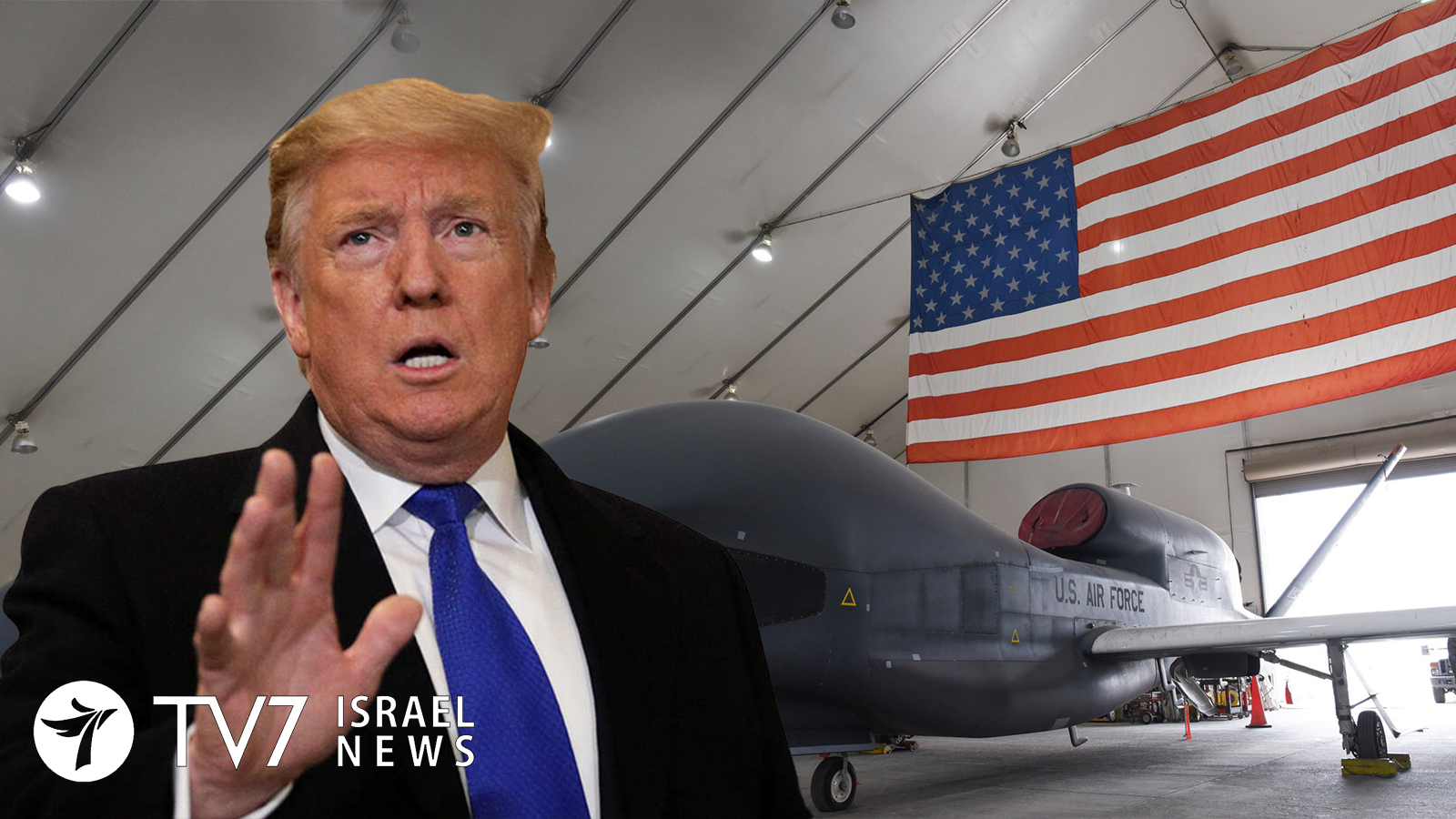U.S. President Donald Trump limited the initially-proposed military plan-of-response in retaliation of the American surveillance drone downed by the Islamic Republic’s Revolutionary Guards on Thursday. According to the American leader, such an attack was disproportionate to Tehran’s targeting of an unmanned aerial vehicle, given the projected ‘casualty assessment’ of some 150 Iranian fatalities. In an exclusive interview with NBC’s “Meet the Press,” President Trump insisted that he is “not looking for war” but emphasized that if Iran was to test America’s patience by actively pursuing nuclear armament – Washington would devastate the Islamic Republic in a manner that has “never seen before.”
Despite repeated statements regarding White House reluctance to escalate the situation into an all-out war with Tehran, U.S. Secretary of State Mike Pompeo arrived in Saudi Arabia today to hold extensive talks with America’s regional partners. Prior to his departure, the top American diplomat revealed that the purpose of his trip is to establish a global coalition to confront the “challenge” presented by Iran.
In addition to the Trump Administration’s diplomatic efforts to unite the international community against the Ayatollah regime, Washington announced a new series of sanctions which took effect early this morning. The development is aimed at further ratcheting-up pressure on the Islamic Republic‘s economy, with a declared goal of ‘denying Iran the resources to foment terror.’
Meanwhile in Israel, U.S. National Security Adviser John Bolton, who is visiting Jerusalem for a pre-scheduled trilateral summit with his Israeli and Russian counterparts, underscored during a joint press conference with Prime Minister Benjamin Netanyahu that “neither Iran nor any other hostile actor should mistake U.S. prudence and discretion for weakness.” While contending that Washington’s sanctions regime on Tehran is bearing fruit, Ambassador Bolton stressed that a military option remains on the table. For his part, Prime Minister Netanyahu welcomed President Donald Trump’s decision to ratchet-up the economic pressure on the Islamic Republic over its malign activities; yet notably stopped short of criticizing the American leader’s decision not to retaliate for Iran’s repeated attacks against American interests in the region, including the downing of the U.S. military drone.
Trump’s failure to respond militarily to the UAV’S downing was not particularly well received in Jerusalem. Washington’s lack of any palpable action toward Iranian provocations to date places Israel in an uncomfortable position. While Netanyahu reportedly instructed his cabinet ministers to refrain from making any public statements about the Islamic Republic, particularly over U.S. policy in the Persian Gulf; Israeli officials have voiced concern to TV7. One senior official said, on condition of anonymity, that “the Trump Administration’s reluctance to retaliate militarily against Iran’s boastful aggression created a wrongful impression within the Islamic Republic, in which their continued attacks may go unanswered.” The official further explained that while he “understands Trump’s political considerations, especially after promising not to involve the United States in yet another Middle East war,” “the mullah’s in Tehran – who are not subject to democratic considerations – view Trump’s inaction as sheer weakness.”
